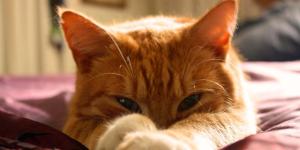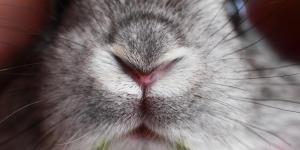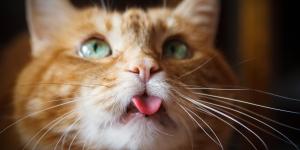My Cat is Twitching in Their Sleep

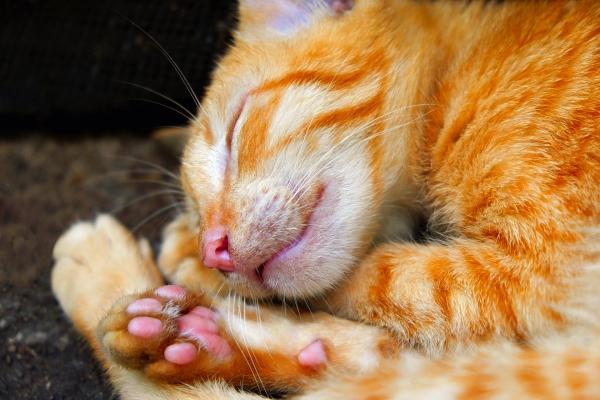

See files for Cats
Having a companion animal in our life is known to be beneficial for people with anxiety. Petting them and reciprocating affection can be great ways to ease stress. Even just watching them sleep can be a very relaxing experience. When we see that our cat is twitching in their sleep, this relaxation may be replaced by worry for their well-being. Understanding the reasons why a cat's sleep is disturbed is a way of safeguarding this well-being.
At AnimalWised we look at the causes of shaking or spasms in a cat while they are sleeping. We find out what is normal in this situation and what might indicate a problem.
Importance of sleeping in cats
A cat will sleep differing amounts throughout their lifetime. When they are newborn, they will sleep for the majority of the day, only rousing to suckle their mother. They won't even be able to open their eyes until about 10 days. Sleep allows them to grow and develop, their internal processes working as their conscious selves rest.
When a cat is an adult, they will still need up to 16 hours of sleep per day, depending on the individual. The time of year may also affect their energy levels. Once they become a senior cat, they will need to sleep even more due to a depletion of their energy levels. All cats need to conserve energy, especially in nature as they do not know when they may need to make a hasty escape.
However, not all sleep is the same. Just as we may have a deep sleep or a light rest, a cat's quality of sleep will differ for various reasons. When we see a cat twitching or trembling in their sleep it could be one of various reasons:
- Digestion
- They are too cold
- Dreaming
- Muscle spasms
- Disease
Below, we take a look at some of these reasons in more depth.
Digestion
After a cat eats, the food will need to pass through their gastrointestinal system. If we see the cat spasming or twitching in their abdominal area, then it is possible this has to do with their digestive processes. Often, a cat will sleep after they eat as they may be disinclined to walk around on a full stomach.
Often, digestive spasms in their sleep are normal and not a sign of an underlying problem. They occur more if the cat has been eating a lot. However, some cats will not chew their food thoroughly and eat too quickly. This makes the food they swallow more difficult to digest and their gastrointestinal tract has to work harder to break it down. This can lead to indigestion and other issues.
The reasons for a cat eating too quickly are often due to insecurity. If they feel like they do not have enough access to food, they may eat too quickly as they see this as their only chance to eat. This is often related to routine. If the cat eats at erratic times of the day, they may eat too fast. Create a stable routine and don't overfeed them. If the cat is simply greedy, give them smaller portions at spaced out intervals so they can't eat too much in one meal. Eating too fast is also a reason cats may vomit after eating.
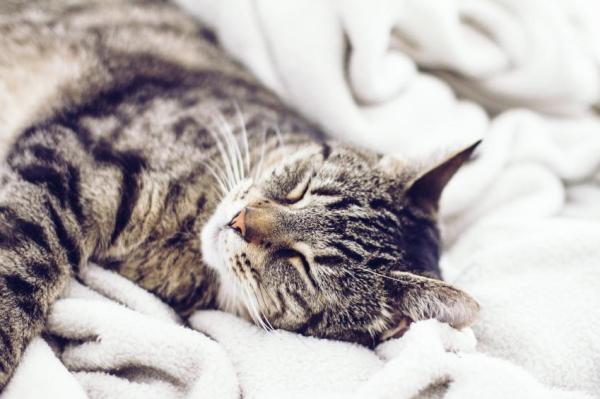
They are too cold
While cats will regulate their body temperature well, it is still possible for them to be chilly. Being too cold is a possible reason your cat is twitching while they are sleeping. Cats have a higher body temperature than human beings at around 39 ºC/102 ºF. On particularly cold days or winter nights, it is not uncommon for the cat to feel cold in their small bodies.
In these cases, the cat may even seek you out to sleep next to you. By sleeping near you, they can share in your body heat and feel warmer. Some cats may be more prone to feeling the cold, especially hairless breeds.
If your cat is trembling from the cold, we need to ensure they are warm. Provide a blanket, take them away from any drafts, put the heating on or simply let them share the bed with you.
Dreaming
One of the most important reasons for a cat to be twitching during the night is due to their dreams. Some may think that a cat cannot dream, bu this is not true. The pioneering French neuroscientist started to study feline sleep and REM movement in the 1950's[1]. He discovered that their sleep patterns suggested that they dream complex behaviors including dreaming of being attacked or exploring.
What this shows is that cats internalize their conscious experiences in their sleep, just as humans do. Since cats run, hunt, explore and make many different movements in their day-to-day lives, movement during sleep shows they are dreaming of such movement. This only happens during REM sleep, which is considered deep sleep. These twitches and spams are not only benign, they are essential for a cat's ability to interact with their environment.
Muscle spasms
Part of Jouvet's discovery about a cat's ability to dream focused on atonia, a term for muscles losing their strength. This is the brain inhibiting motor skills, something which is necessary for sleeping and conservation of energy. While dreaming, the cat is essentially temporarily paralyzed. This is normal and important.
While these types of muscle spasms are benign, it is possible the cat is suffering from other muscle issues. For example, senior cats will often lost strength in their muscles due to the deteriorating effects of old age. It is possible that the spasms are due to this type of deterioration. If the cat has suffered an injury, it is likely they will remain still when sleeping, but if a muscle has been affected, it is possible it will twitch.
However, if the cat is having muscle problems, twitching and other symptoms won't only occur when they are sleeping. In fact, this is likely when they are least visible. When they try to walk or otherwise be mobile, this is when muscle problems are most visible.
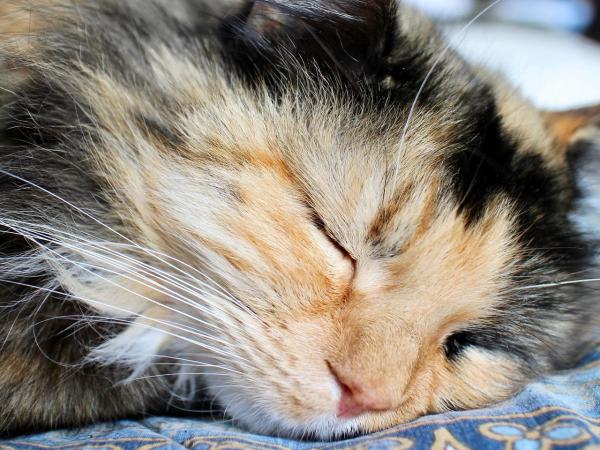
Disease
Finally, if your cat is twitching while they sleep, we need to be very careful to ensure they are not suffering from a medical condition. While the symptoms of illness should be more evident when they are awake, it is also possible twitching is signalling a disease or other health problem.
If the cat has a parasitical infestation, the irritation the parasites cause may lead to disturbed sleep. If they are in pain from an internal illness or injury, the twitching may also be related to this. We will need to monitor them and see if there is cause for concern. If you are at all worried, you will need to take them to a veterinarian for diagnosis.
As you can see, a cat may twitch during sleep for a variety of reasons. Some of them are benign, but others may indicate an issue. Part of our responsibility of care for the cat is observing them for any problems and addressing them when they arise.
If you want to read similar articles to My Cat is Twitching in Their Sleep, we recommend you visit our Facts about the animal kingdom category.
1. Arnulf, I., Buda, C., & Sastre, J.-P. (2018). Michel Jouvet: An Explorer of Dreams and a Great Storyteller. Sleep Medicine, 49, 4-9.
https://pubmed.ncbi.nlm.nih.gov/30017825/

